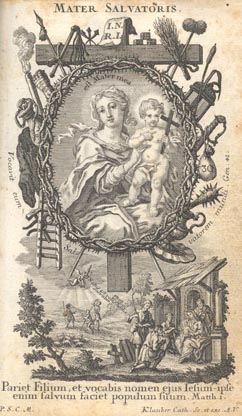
Tuesday, September 22, 2020 –
Normally, we would discuss today’s topic (SACRED SCRIPTURE) and tomorrow’s topic (SACRED TRADITION) as part of the THREE PILLARS OF THE CHURCH’S AUTHORITY together because they make up the “deposit of faith.” Also, that is how the Catechism deals with them. However, I want to look at each separately because of protestants. Yes, you read that right!
You see, back in the early 1500s there was a man named Martin Luther who got mad at the sale of indulgences, but then ran headlong into left field with all sorts of complaints and crazy ideas about starting a revolution reformation and his own Church with his own rules because nutty German Priests doing non-Catholic stuff isn’t a Vatican II thing, it is a fallen man through all of history thing. Yes, the sale of indulgences was wrong (thank you, Pope Pius V for ending that!), BUT…Luther took it a little too far when he started nailing things to doors and rejecting large portions of Catholic teaching.
Anyhoo, back to SACRED SCRIPTURE. Luther got it into his craw that Scripture is the ONLY infallible source of authority in the Christian (Catholic) Church. He threw out all of Sacred Tradition handed down from the Apostles. This, dear friends, is called Sola Scriptura (AKA by Scripture alone). Tomorrow we will talk about Sacred Tradition and how important it is to the deposit of faith.
In the meantime, let’s go over what exactly Sacred Scripture is. Short answer: the Bible. Long answer: the Old and New Testaments of the Bible.
Of course, if you want the official Catechism definition, it is:
76 In keeping with the Lord’s command, the Gospel was handed on in two ways:
…
– in writing “by those apostles and other men associated with the apostles who, under the inspiration of the same Holy Spirit, committed the message of salvation to writing”.
Likewise:
81 “Sacred Scripture is the speech of God as it is put down in writing under the breath of the Holy Spirit.”
Above, the Catechism is quoting Pope Paul VI’s Dei Verbum, which says quite a lot about Sacred Scripture:
11. Those divinely revealed realities which are contained and presented in Sacred Scripture have been committed to writing under the inspiration of the Holy Spirit. For holy mother Church, relying on the belief of the Apostles (see John 20:31; 2 Tim. 3:16; 2 Peter 1:19-20, 3:15-16), holds that the books of both the Old and New Testaments in their entirety, with all their parts, are sacred and canonical because written under the inspiration of the Holy Spirit, they have God as their author and have been handed on as such to the Church herself.(1) In composing the sacred books, God chose men and while employed by Him (2) they made use of their powers and abilities, so that with Him acting in them and through them, (3) they, as true authors, consigned to writing everything and only those things which He wanted. (4)
Therefore, since everything asserted by the inspired authors or sacred writers must be held to be asserted by the Holy Spirit, it follows that the books of Scripture must be acknowledged as teaching solidly, faithfully and without error that truth which God wanted put into sacred writings (5) for the sake of salvation. Therefore “all Scripture is divinely inspired and has its use for teaching the truth and refuting error, for reformation of manners and discipline in right living, so that the man who belongs to God may be efficient and equipped for good work of every kind” (2 Tim. 3:16-17, Greek text).
In case you missed it, here is the most important line: “the books of both the Old and New Testaments in their entirety, with all their parts, are sacred and canonical because written under the inspiration of the Holy Spirit, they have God as their author and have been handed on as such to the Church herself.” Likewise, the ending line from 2 Timothy 3: 16-17 about “all Scripture is divinely inspired” is also of great importance.
Out of the deposit of faith, Sacred Scripture is definitely the easiest to wrap your head around because it is the Bible—ALL of it! It is part of the deposit of faith because it is from God, and while it was written by man, it—ALL of it—is Divinely inspired by the Holy Spirit.
Sacred Scripture = Bible = from God = authority = pillar of the Church’s authority
God didn’t say “everything except Baruch, Judith, 1 and 2 Maccabees, Sirach, Tobit, Wisdom, and only some of Esther and Daniel.” But, now we are getting into that gentle crossover of Sacred Scripture AND Sacred Tradition. In the short, know that the Apostles and early Church Fathers used and quoted all of those books that protestants reject, and by at the Council of Rome in 382, under the authority of Pope Damasus I, the Old and New Testament as we know them (AKA the canon of Scripture) was definitively settled. End.Of.Discussion!
So, tomorrow we will get into the Sacred Tradition part of the deposit of faith and pillar of the Church’s authority.
P.S. I have always wanted to ask Luther, “Dude! If you were going to go the Sola Scriptura route, why would you throw out some the Scriptura part? Boggles the mind!” But, I know the answer: Purgatory, among other parts of the Faith they reject. #StoryForAnotherDay
Mother of our Savior, pray for us!
